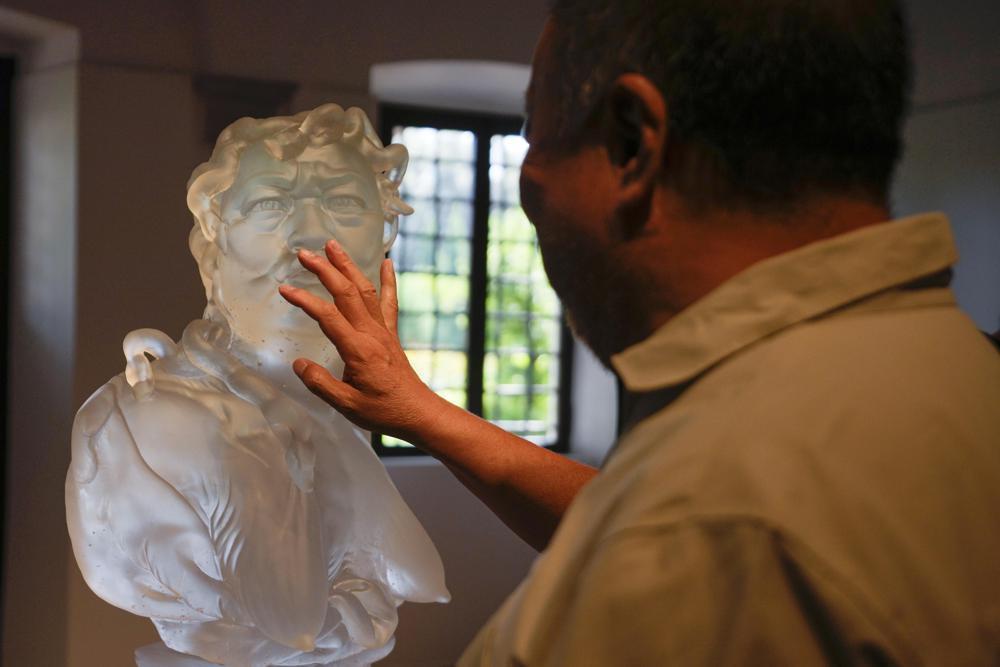
Chinese dissident artist Ai Weiwei warns against hubris in what he calls “such a troublesome time” with his first glass sculpture, made on the Venetian island of Murano, with the foreboding subtitle: “Memento Mori,” Latin for “Remember You Must Die.”
Russian bombs fall on Ukraine. China is flexing its military muscle in the Taiwan Strait. Migrants die repeatedly at sea as smugglers’ boats sink. The Earth warms, creating drought, collapsing glaciers and triggering violent storms. The pandemic lingers.
“We are talking about many, many things. We are talking about immigrants, about deaths, about the war, about many, many issues,” Ai told The Associated Press in Venice.
He stands by his 9-meter, nearly 3-ton black glass sculpture, which is suspended over the central nave of the church of San Giorgio Maggiore, located opposite Venice’s St. Mark’s Square. Titled “The Human Comedy: Memento Mori,” the sculpture is the centerpiece of an Ai exhibit at the church that opened on Sept. 4.
The huge hanging artwork is part chandelier, part ossuary, with intricately hung molded glass skeletons and skulls, both human and animal, balanced with glass-blown human organs and scattered likenesses of the Twitter bird logo and surveillance cameras, hinting at the darker side of technology.
“We see the environment completely disappearing, being destroyed by humans’ effort ... and that will create a much bigger disaster or famine. Or war, there’s a possible political struggle between China and the West? As China asserts greater control over Hong Kong and threatens control over Taiwan, Ai said.
“We have to rethink about humans and legitimacy in the environment. Do we really deserve this planet, or are we just being so short-sighted and racist? And very, very just self-demanding, selfishness,” the artist added.
The exhibit also features smaller glass sculptures. One depicts Ai himself as a prisoner, a reference to his months in a Chinese prison in 2011. Another imposes his distorted face on a replica of an 18th-century statue titled “Allegory of Envy.” A wooden sculpture of a tree trunk fills a sacristy. Colored glass hard hats save places in the choir. Lego-brick portrait replicas of famous paintings and the Chinese zodiac line the walls of adjacent rooms.
Ai said he thinks Russia’s invasion of Ukraine gave Chinese authorities a “potential model” to understand how such an operation might play out in Taiwan, without serving either as encouragement or warning.
“I think China is part of the global power struggle that reflects our modern understanding and the classic notion about territory and who has the right to do what,” he said. ”What what happens in the Russian and Ukraine conflict gives China a clear maybe mental exercise about what they want to do in Taiwan, if it is needed.”